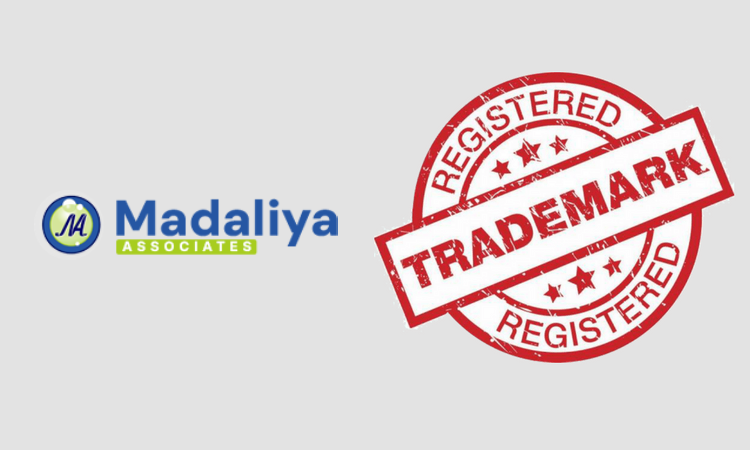

1. Introduction to Trademark Registration in India
Trademark registration is a legal process that helps secure your brand identity, whether it's a business name, logo, slogan, or symbol. In India, trademarks are registered under the Trademarks Act, 1999, which grants exclusive rights to the owner. With the increasing risk of brand infringement in today's digital world, trademark protection has become more essential than ever. By registering your trademark, you protect your intellectual property from unauthorized use and build consumer trust. This guide explains the step-by-step procedure for trademark registration in India, making it simple for startups, MSMEs, and companies to file their applications online without hassle.
2. Why Trademark Registration is Important
Registering a trademark offers numerous legal and business benefits. A registered trademark gives the owner the exclusive right to use the mark and legally enforce it against others. It helps in establishing a distinct identity in the marketplace, adds brand value, and enhances customer loyalty. It also becomes a valuable intangible asset that can be sold, franchised, or licensed. Furthermore, in case of a dispute, having a trademark registration certificate serves as strong evidence of ownership. For businesses aiming to grow locally or internationally, trademark protection is crucial in building a trustworthy and competitive brand image.
3. Step 1: Trademark Search and Analysis
Before you proceed with filing a trademark, the first and most important step is conducting a trademark search. This ensures that your desired brand name, logo, or slogan is not already registered or too similar to existing trademarks. The search can be done through the official IP India Public Search portal, where you can search by wordmark, phonetic match, or class of goods/services. A proper trademark search helps avoid objections and legal disputes later. If your mark is unique, you can confidently proceed to the next step of online trademark registration in India.
4. Step 2: Choosing the Right Trademark Class
Every trademark must be registered under the correct trademark class, as per the Nice Classification system. There are 45 classes in total—Classes 1 to 34 cover goods, and Classes 35 to 45 are for services. For instance, a business selling clothing products will register under Class 25, while an IT service provider would choose Class 42. Selecting the correct class is crucial because it defines the scope of your trademark protection. Filing under the wrong class can lead to rejection or limited protection. Businesses dealing in multiple goods/services can file under multiple classes.
5. Step 3: Gather Required Documents
To begin the trademark registration process in India, you need to submit the necessary documents. These include the applicant’s ID proof (Aadhar, PAN, Passport), address proof, and if applicable, business registration certificates such as Partnership Deed, LLP Agreement, or Certificate of Incorporation. If you're using a logo or wordmark, a clear image file (JPEG/PNG) should be included. You must also provide a Power of Attorney (Form TM-48) if you're authorizing a trademark attorney or agent to file on your behalf. If you're an MSME or a Startup, attach the relevant government certificate for fee concessions.
6. Step 4: Filing the Trademark Application (Form TM-A)
Once all documents are ready, you can proceed to file the trademark application using Form TM-A. This form is available on the official IP India portal and supports both individual and business entity filings. During the filing, you’ll need to enter details like applicant name, address, trademark class, mark description, and attach the logo or wordmark. The application can be filed as a wordmark, device mark (logo), sound mark, or combination mark. After submission, you receive a Trademark Application Number, which you can use to track your application status online.
7. Step 5: Pay the Trademark Application Fees
The government fees for trademark registration vary based on the applicant type and number of classes. If you’re an individual, startup, or MSME, the fee is ₹4,500 per class. For companies or LLPs, the fee is ₹9,000 per class. The payment can be made online through net banking, debit card, or UPI. It’s important to note that fees are non-refundable. Filing under multiple classes or with additional specifications will increase the overall cost. Make sure you have the correct class and documentation to avoid errors that may lead to application rejection.
8. Step 6: Trademark Examination by the Registry
Once your application is submitted and payment is done, it is assigned to a Trademark Examiner for review. The examiner evaluates whether your mark is eligible for registration based on legal guidelines, uniqueness, and similarity to existing marks. This stage may take 1 to 3 months. The examiner can either accept the application, issue an examination report with objections, or reject the application. If objections are raised, you will be notified and asked to respond with clarifications or legal arguments. A well-drafted reply by a trademark attorney can increase approval chances.
9. Step 7: Publication in the Trademark Journal
If your application is accepted by the examiner or objections are successfully resolved, your trademark is published in the Trademark Journal. This step allows the public to view your trademark and raise any opposition within a period of 4 months. If no opposition is filed during this time, your application proceeds toward final registration. In case an opposition is raised, both parties must attend a hearing and submit evidence. The registrar will then decide whether to approve or reject the trademark. This publication phase ensures transparency and prevents conflicting trademarks from being registered.
10. Step 8: Trademark Registration Certificate
After completing the journal publication period with no objections, your trademark gets approved for registration. The Trademark Office issues a registration certificate, granting you exclusive rights over the mark. You can now use the ® (Registered) symbol alongside your brand name or logo. The validity of a trademark registration in India is 10 years, and it can be renewed indefinitely every 10 years by filing a renewal application. The certificate serves as legal proof of your brand ownership and helps you enforce your rights in case of infringement or misuse.
11. Trademark Renewal and Maintenance
To maintain trademark protection, it is essential to renew the trademark every 10 years. You can file a renewal application up to 6 months before the expiry date using Form TM-R. Failure to renew on time can result in the trademark being removed from the registry. However, you can restore a lapsed trademark by filing a restoration application within one year of expiry. Keeping track of your trademark’s validity ensures uninterrupted brand protection. Renewing on time also prevents others from misusing your brand or filing for a similar mark in the future.
12. Conclusion: Register Your Trademark the Right Way
The procedure for trademark registration in India is a structured and transparent process designed to protect intellectual property. By following the right steps—from conducting a trademark search and selecting the correct class to filing Form TM-A and responding to objections—you can secure your brand with confidence. A registered trademark is not just a legal tool; it’s a symbol of trust, uniqueness, and ownership. Whether you're a startup, MSME, or growing business, investing in trademark protection is a smart decision. For a smooth and error-free experience, consider consulting trademark professionals or visiting madaliya.com for expert help.






